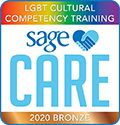Gambling & Seniors
While gambling for entertainment can be harmless for many people, older adults who gamble to escape anxiety and depression related to loneliness, physical health issues or limited mobility may be at heightened risk for developing a gambling problem.
If you or someone you know has a gambling problem, call 1-800-GAMBLER, text ILGAMB to 833234, or visit AreYouReallyWinning.com for help.
Gam-Anon – A self-help organization that assists people in resolving the problems they are facing due to the gambling problem. Illinois Hotline: (708) 802-0105, National: (718) 352-1671
Gambling Addiction Assistance, Illinois Gaming Board
Gamblers Anonymous – A fellowship of men and women who share their experience, strength and hope with each other that they may solve their common problem and help others to recover from a gambling problem. Chicago Hotline: (312) 346-1588
Illinois Casino Gaming Association – A not-for-profit organization representing the riverboat gaming industry in Illinois. It is also committed to promoting responsible gaming and offering support mechanisms for people in need of help. 24/7 Help Line/Referral Service: 1-800-GAMBLER (1-800-426-2537)
Illinois Institute for Addiction Recovery, at Proctor Hospital and BroMenn Regional Medical Center – Established in 1979 at Proctor Hospital in Peoria, Illinois, the Institute offers a wide variety of services and programs to meet the growing need for hospital-based addiction recovery treatment. Phone: 1-800-522-3784
International Center for Responsible Gambling – Formerly known as the National Center for Responsible Gambling, the ICRG is an organization that supports education and funding for problem gambling research. The group is dedicated to helping understand and address gambling disorders.
National Council on Problem Gambling – The mission of the Council is to increase public awareness of pathological gambling, ensure the widespread availability of treatment for problem gamblers and their families, and to encourage research and programs for prevention and education. 24-Hour Confidential National Helpline: 1-800-522-4700




